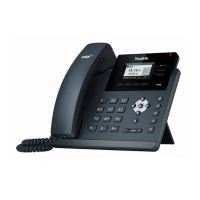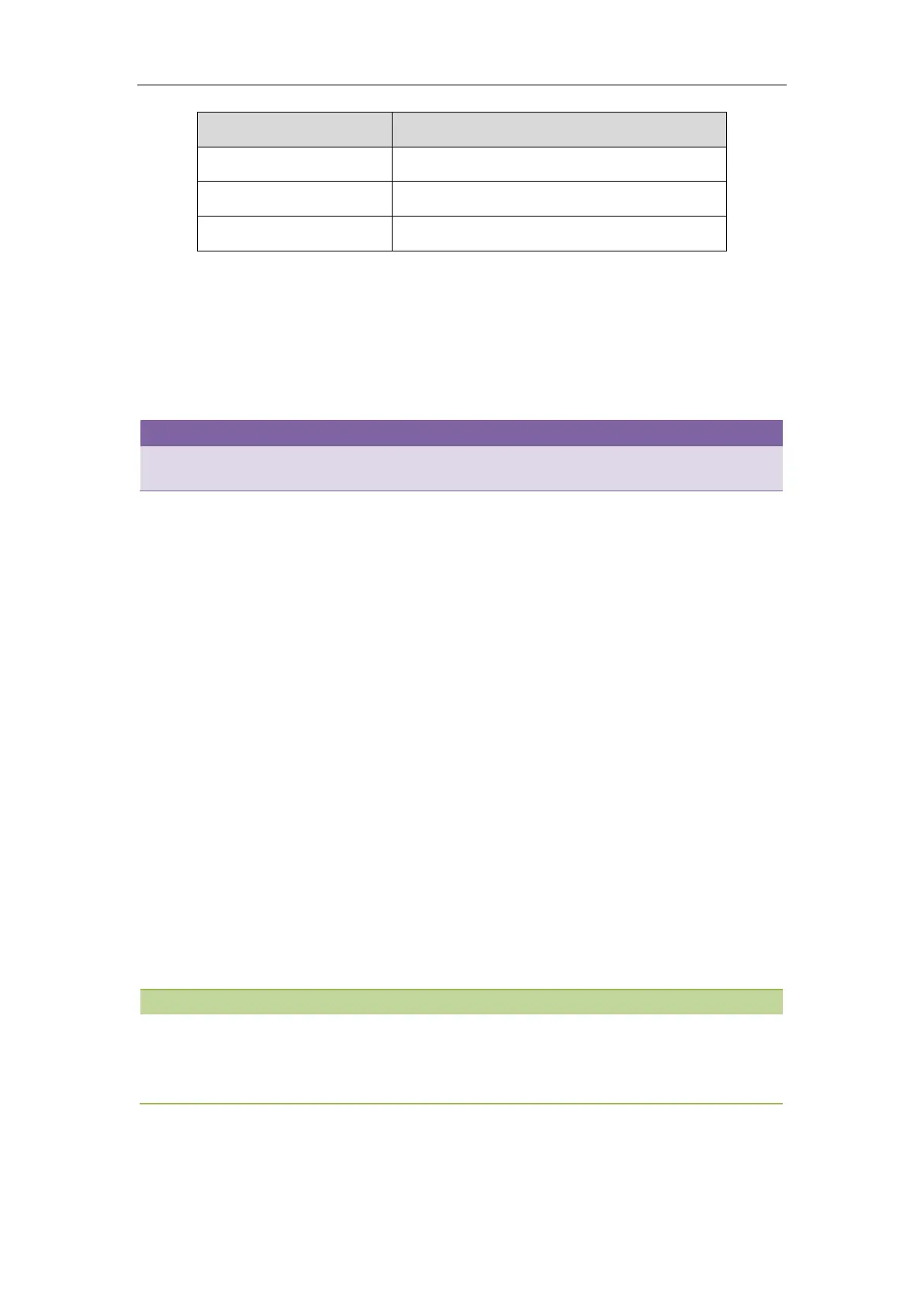Administrator’s Guide for SIP-T2 Series/T4 Series/T5 Series IP Phones
58
MAC CFG File
Yealink supports two MAC CFG file: MAC-Oriented file and MAC-local CFG file, which are both named
after the MAC address of the IP phone. For example, if the MAC address of an IP phone is 00156574B150,
the name of MAC-Oriented CFG file is 00156574b150.cfg (lowercase), and the name of MAC-local CFG
file is 00156574b150-local.cfg (lowercase).
MAC address, a unique 12-digit serial number is assigned to each phone. You can obtain it from the bar
code on the back of the IP phone.
Topics
MAC-Oriented CFG File
MAC-local CFG File
MAC-Oriented CFG File
MAC-Oriented CFG file, named <MAC>.cfg, contains parameters unique to a particular phone, such as
account registration. It will only be effective for a MAC-specific IP phone.
MAC-local CFG File
MAC-local CFG file, named <MAC>-local.cfg, contains changes associated with non-static parameter that
you make via web user interface or phone user interface (for example, changes for time and date formats,
ring tones, and DSS keys).
This file generates only if you enable the provisioning priority mechanism. It is stored locally on the IP
phone and you can upload it to the provisioning server each time the file updates. This file enables the
users to keep their personalized configuration settings, even though the IP phone performs auto
provisioning.
The non-static changes that you made before enabling the provisioning priority mechanism are not saved in
the generated MAC-local file, but the previous settings still take effect on the phone. The static changes are
never be saved to the <MAC>-local.cfg file.
The provisioning priority mechanism is enabled by the parameter “static.auto_provision.custom.protect”.

